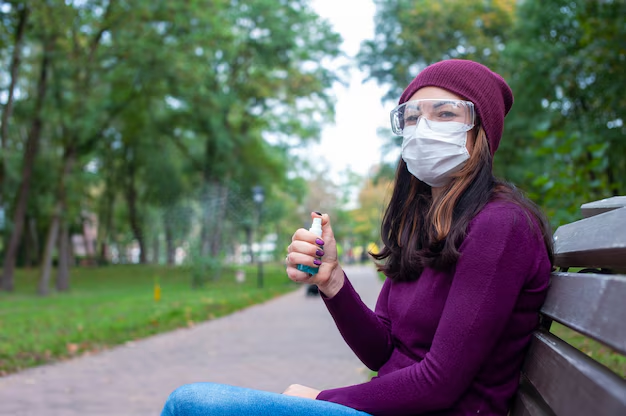Protecting Yourself Against Pneumonia: Tips and Strategies
Pneumonia is a respiratory infection characterized by the inflammation of the air sacs in the lungs. For many, it may only mean a few days off work or school, but for others, it poses a grave risk, especially in vulnerable populations such as the elderly, infants, and those with weakened immune systems. But how do you prevent a condition that seems to strike indiscriminately? It might not be as elusive as it seems. By understanding the nature of pneumonia and implementing practical preventative strategies, you can significantly reduce your risk of developing this illness.
Understanding Pneumonia: A Quick Overview
Pneumonia can be caused by various infectious agents, including bacteria, viruses, and fungi. Each cause may require different approaches not only for treatment but also for prevention. Knowing the variety of causes allows a more targeted approach to prevention, tailored to individual risk factors and lifestyles.
Bacterial Pneumonia
One of the most common types of bacterial pneumonia, especially in adults, is caused by the bacterium Streptococcus pneumoniae. This bacterium can also lead to other conditions such as meningitis and bloodstream infections.
Viral Pneumonia
Viral pneumonia can be caused by influenza, respiratory syncytial virus (RSV), and even SARS-CoV-2, the virus responsible for COVID-19. These viral infections can often lead to secondary bacterial pneumonia.
Fungal Pneumonia
This is typically more common in people with weakened immune systems and involves fungi commonly found in soil or bird droppings, such as Histoplasma, that can be inhaled.
Steps to Prevent Pneumonia
Vaccination: Your First Line of Defense
Vaccination is a critical strategy in preventing pneumonia. The pneumococcal vaccine protects against many strains of pneumococcal bacteria, and should be considered by everyone, but especially those at higher risk. The influenza vaccine helps prevent viral pneumonia caused by the flu.
Key Points About Vaccination:
- Who Should Get Vaccinated? Adults 65 years and older, children under 5 years, and people with chronic health conditions.
- Types of Vaccines: Pneumococcal conjugate vaccine (PCV13) and pneumococcal polysaccharide vaccine (PPSV23) are crucial for adults. Flu vaccines should be annual.
- When to Vaccinate: Follow recommended vaccine schedules set by health organizations for both children and adults.
Maintain Good Hygiene
Good hygiene practices can significantly reduce your risk of respiratory infections. Here are some effective practices:
- Wash Your Hands: Regular hand washing with soap and water for at least 20 seconds.
- Use Hand Sanitizer: When soap and water aren't available, use a sanitizer with at least 60% alcohol.
- Avoid Touching Your Face: Your eyes, nose, and mouth are entry points for germs.
Bolster Your Immune System
A strong immune system is your best defense against infections. Maintaining a healthy lifestyle can significantly boost your immunity.
- Eat a Balanced Diet: Include plenty of fruits, vegetables, whole grains, and lean proteins.
- Exercise Regularly: Aim for 150 minutes of moderate exercise per week.
- Get Enough Sleep: Adults need 7-9 hours of sleep per night.
- Stay Hydrated: Drink plenty of water throughout the day.
Manage Chronic Conditions
Chronic illnesses such as asthma, diabetes, and heart disease can increase your risk of pneumonia. Managing these conditions effectively is key.
- Monitor Symptoms: Regularly check in on your health and consult with healthcare providers to manage or adjust treatments as necessary.
- Medication Adherence: Take medications as prescribed to control disease symptoms.
Avoid Smoking and Limit Alcohol
Smoking damages lung tissue and impairs immune function, increasing pneumonia risk. Avoid smoking altogether or seek help to quit if you're a smoker.
- Limit Alcohol Consumption: Excessive alcohol affects your immune system and lung health.
Reduce Exposure to Illness
- Avoid Sick Individuals: Stay away from people with cold or flu symptoms when possible.
- Wear Masks: In crowded places or during flu season, masks can reduce the spread of respiratory diseases.
- Practice Social Distancing: Particularly in high flu seasons or pandemics.
Special Considerations for Vulnerable Populations
Elderly Population
Elderly individuals are at heightened risk due to age-related decline in immune function and should adhere strictly to prevention guidelines.
- Regular Health Check-ups: Regular screenings can help catch complications early.
- Vaccination Emphasis: Greater focus on pneumococcal and influenza vaccines.
Infants and Young Children
Ensure that children's vaccinations are up-to-date, including the HiB and pneumococcal vaccines.
- Breastfeeding: Consider breastfeeding to provide infants with antibodies to boost their immune systems.
Immunocompromised Individuals
Such individuals should consult with healthcare providers about additional vaccinations or preventative antibiotics.
Closing Insights on Pneumonia Prevention
Preventing pneumonia is about creating a multi-layered defense strategy—vaccinations, lifestyle choices, and hygiene practices form a comprehensive shield. With these proactive steps, you empower yourself to face the colder months and crowded spaces with confidence.
Key Takeaways on Pneumonia Prevention at a Glance:
- 🛡️ Vaccinate: Protect against bacterial and viral forms with recommended vaccines.
- 🧼 Hygiene Matters: Keep hands clean and avoid touching your face.
- 💪 Boost Immunity: Maintain a healthy diet, exercise, and sleep routine.
- 🚭 Lifestyle Choices: Stop smoking and limit alcohol intake.
- ⚕️ Manage Health: Keep chronic conditions under control.
- 🤝 Distance Wisely: Avoid sick individuals and use masks when needed.
- 👶 Prioritize Vulnerable Populations: Special care for children, elderly, and immunocompromised individuals.
By integrating these practices into everyday life, the threat of pneumonia can be kept at bay, ensuring a healthier and more secure future for you and those around you.

Related Articles
- a Typical Pneumonia
- Can a Cold Turn Into Pneumonia
- Can a Sinus Infection Turn Into Pneumonia
- Can Amoxicillin Cure Pneumonia
- Can Amoxicillin Treat Pneumonia
- Can Baby Oil Cause Pneumonia
- Can Bronchitis Turn Into Pneumonia
- Can Covid Turn Into Pneumonia
- Can Doxycycline Treat Pneumonia
- Can Flu Turn Into Pneumonia
